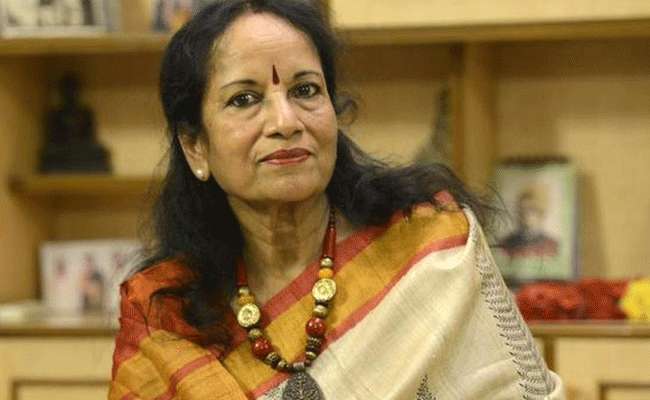Chennai (PTI): Iconic singer Vani Jayaram who has crooned over 10,000 songs in 19 languages, including the very popular Hindi number 'Bole re papihara' died here on Saturday.
She was 77 and was living alone at a downtown apartment, where she was found dead, police said.
Vani Jayaram's husband predeceased her and she had no children, the singer's domestic help said.
The singer's maid said she turned up as usual for work on Saturday. However, she did not get any response despite repeatedly pressing the calling bell, she told reporters here.
Immediately, she said, she alerted the singer's relatives who informed police.
In the presence of Vani Jayaram's relatives, police broke open the door and found her dead, she said.
Malarkodi, who has been working for the past 10 years as a maid in the singer's house said police found an injury on Vani Jayaram's forehead. Police said she may have fallen down and injured herself.
Asked if she had any health issues, the worker said she was perfectly alright.
"She was busy receiving guests and well-wishers who visited her to greet her for getting the Padma Bhushan award. Phone was endlessly ringing and she answered all the calls and thanked everyone who greeted her. She lived alone," the woman said.
Let the Truth be known. If you read VB and like VB, please be a VB Supporter and Help us deliver the Truth to one and all.
Hyderabad (PTI): Telangana Chief Minister A Revanth Reddy met Union Home Minister Amit Shah in Delhi on Wednesday night and urged him to increase the sanctioned strength of IPS officers to the state in view of its growing administrative and security needs.
The two leaders also discussed the recent surrender of several senior Maoist leaders before the Telangana Police and other issues.
"During the meeting, the two leaders discussed the issue of Maoist surrenders and their rehabilitation. The chief minister informed Shah that significant improvements in policing have taken place in Telangana over the past two years," an official release here said.
Highlighting that 591 Maoists have laid down their arms and joined the mainstream of society during this period, the chief minister said the state government was providing them compensation and rehabilitation assistance as per the rules.
He requested the Union home minister to extend financial support from the central government for development works in the backward regions of the state.
Reddy also urged Shah to increase the sanctioned strength of IPS officers to the state from 83 to 105 in line with the state's growing administrative and security needs, the statement said.
The first cadre review after the formation of Telangana was conducted in 2016, while the next review, due in 2021, was delayed and finally carried out in 2025. Even then, only seven additional IPS officers were allocated to the state, the chief minister informed Shah and requested that the third cadre review be conducted in 2026 as per the schedule.
Reddy explained that Telangana, like the rest of the country, is facing several modern challenges, including cybercrime, drug trafficking, white-collar crimes, and other emerging security threats.
He highlighted the reorganisation of the Hyderabad, Cyberabad, and Malkajgiri Police Commissionerates, the proposed formation of the Future City Commissionerate and the rapidly growing population in Hyderabad to underline the increasing administrative requirements of the state.





